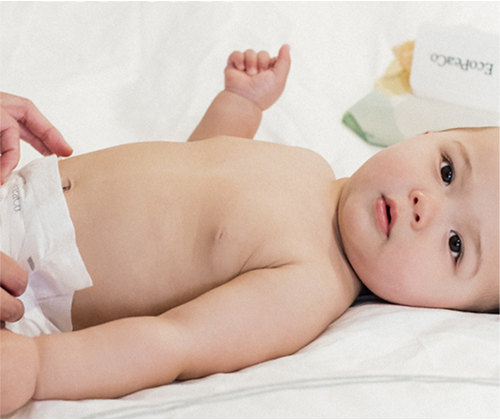It’s common for the “Prepping For Baby To-Do List” to fill to overflowing during pregnancy. But what are the activities that will actually reduce your stress when baby arrives? What are the to-dos that will allow you to enjoy the early days of baby’s life, instead of feeling frazzled and overwhelmed? We have your answers! The following tasks are the most crucial to check off your list if you want to slide into motherhood feeling as prepared as possible.
Make a Plan For Support.
Another essential aspect of early parenthood is having the right support. As you’ll likely be too exhausted to organize this support after baby is born, make a plan with your partner, and friends and family members who have agreed to help out, before the baby arrives. For example, you can ask your partner to do most of the diaper changes, as you’ll likely be doing all the feedings, and to be in charge of laundry for the first three months of baby’s life. Take a look at your current tasks and discuss who will be in charge of what and where you can request outside help from friends and family.
Set Up House Cleaning For the First Month (or more) Postpartum.
Cleaning will be the last thing you feel like doing in the early days of life with baby, but having a clean house can seriously reduce your stress. So, either ask those supporters mentioned in the previous tip to help out with cleaning at least once a week, or splurge on a weekly cleaning service until you feel up for taking this duty back on.
Sign Up For a Diaper and Wipe Subscription.
Diapers and wipes are the two things you’ll need the most during baby's first year. Make sure your supply never gets low by signing up for a diaper subscription service that automatically sends you a shipment of wipes and diapers in the size you request, based on the delivery schedule you specify.
You can make sure you don’t end up with diapers that irritate baby’s skin, or are harmful to the environment, by selecting brands like Eco Pea Co., that provide eco-conscious, hypoallergenic diapers and wipes specifically designed for highly-sensitive skin. This type of subscription will save you money, prevents the headache of having to re-order, and lets you cancel anytime.
Make Sure You Have Food Covered.
Ensure you’re not stuck with the time-consuming task of cooking during the first few weeks postpartum by doing things such as asking a friend or family member to send a Meal Train invite to members of your community. This allows people to sign up for dropping a meal off at your house on a given day. Most Meal Train websites allow you to specify dietary preferences and restrictions, and when and where you want the meals left. This is a great gift to request at your Baby Shower or put your best friend in charge of. Another option is to sign up for a meal kit or meal delivery service and/or spend time prepping meals and healthy snacks (like easy-grab muffins) to keep in the freezer for when baby arrives. Having food available quickly can be a real life-saver, especially for the first month or two.
Purchase a Postpartum Recovery Kit.
Regardless of the type of birth you have, there are a variety of items that can enhance the healing process and make things easier for you. As it can be a hassle to purchase all the items separately, and even figure out what to buy, it’s ideal to purchase a Postpartum Recovery Kit that comes with items like sanitary pads, mesh underwear, perineal spray and a peri bottle, nursing bras and pads, stool softeners, and a host of other helpful products. You don’t know what you need until you need it, so a pre-made kit will have you fully covered and feeling ready.
Find a Pediatrician.
Most pediatricians will want to see a newborn three to five days after birth, so it’s wise to select a pediatrician before your baby is born. To find the right person, ask friends and family members for referrals, and check online reviews. It’s also smart to interview your top choices before making a final selection.
Organize the Baby Zones.
Diaper changes, wardrobe swaps, feeding, and a slew of other newborn activities will be a lot easier if the areas where they’ll take place are set up during pregnancy. If baby will have a nursery, make sure the various “zones” – for example, diapering, changing, feeding, and sleeping – are stocked and organized. If you’re not using a nursery, stock and organize the stations where these activities will primarily take place in other areas of the house.
Planning ahead and getting these things set up and in place will leave you free to simply focus on baby and your new family, which is the only thing you’ll want to do, rather than having your mind on items you need and things that need to get done. With so many options available to be delivered, you can set these up well in advance and move into motherhood feeling as prepared and at-ease as possible.


